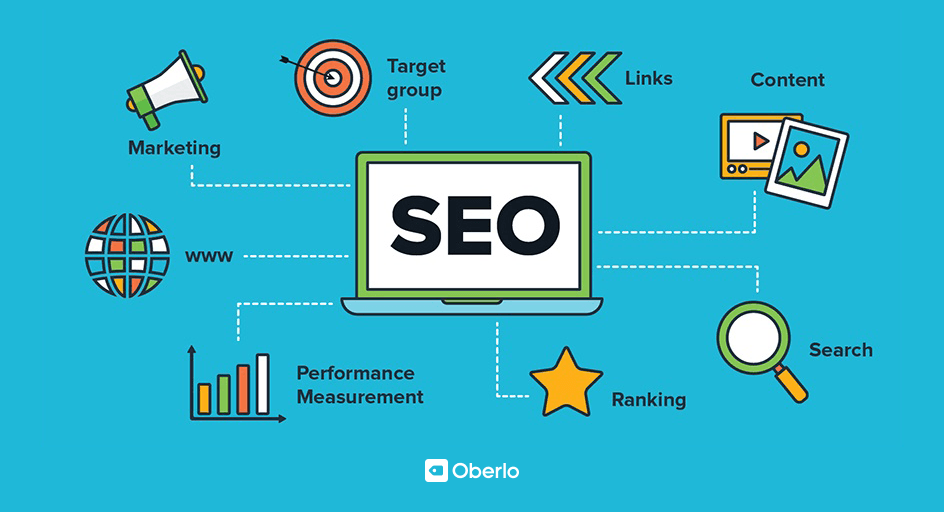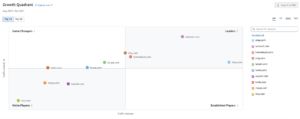Looking to boost your website’s visibility and increase your online presence? Well, you’ve come to the right place! In this article, we’ll dive into the exciting world of SEO tools and uncover the secrets to using them effectively. SEO tools are like the Swiss Army knives of the digital marketing world – they provide you with the power to optimize your website, analyze data, and stay ahead of the competition. So, if you’re ready to take your website to new heights, buckle up and let’s explore how to use SEO tools like a pro!
When it comes to SEO, knowledge is power. And SEO tools are the key to unlocking that power. These tools are designed to help you identify areas for improvement, track your website’s performance, and make data-driven decisions. From keyword research to backlink analysis, SEO tools have got you covered. But with so many options out there, it’s essential to know which ones to use and how to make the most of them. In this article, we’ll walk you through the ins and outs of using SEO tools effectively, providing you with the knowledge and skills you need to optimize your website and climb the search engine rankings. So, grab your notepad and get ready to dive into the exciting world of SEO tools!
How to Use SEO Tools:
- Research and select the right SEO tools for your needs. Consider factors such as functionality, user-friendliness, and cost.
- Install and set up the chosen SEO tools on your website or platform.
- Explore the different features and functionalities of the SEO tools and familiarize yourself with their interfaces.
- Perform keyword research using the tools to identify relevant and high-ranking keywords for your content.
- Analyze your website’s performance using the SEO tools, including tracking rankings, monitoring backlinks, and assessing site speed.
- Optimize your content and website based on the insights provided by the SEO tools, such as optimizing meta tags, improving site structure, and enhancing user experience.
- Regularly monitor and track the progress of your SEO efforts using the tools’ reporting and analytics features.

How to Use SEO Tools?
SEO tools are essential for optimizing your website and improving its visibility in search engine results. In this article, we will explore the various ways you can effectively use SEO tools to enhance your online presence. From keyword research to competitor analysis, these tools offer valuable insights that can help you stay ahead in the digital landscape.
Keyword Research
Keyword research is the foundation of any successful SEO strategy. It involves identifying the keywords and phrases that are relevant to your business and have high search volumes. SEO tools like Google Keyword Planner, SEMrush, and Ahrefs provide comprehensive keyword data, including search volume, competition level, and related keywords. By using these tools, you can discover the most relevant and valuable keywords to target in your content.
One effective approach to keyword research is to focus on long-tail keywords. These are more specific phrases that have lower search volumes but often indicate higher user intent and conversion rates. By targeting long-tail keywords, you can attract highly targeted traffic to your website and increase your chances of converting visitors into customers.
Competitor Analysis
Analyzing your competitors’ strategies is crucial in the world of SEO. By understanding what your competitors are doing well, you can identify areas where you can improve and gain a competitive advantage. SEO tools like SEMrush and Moz allow you to analyze your competitors‘ organic search rankings, backlinks, and top-performing content.
When conducting competitor analysis, pay attention to the keywords they are targeting and the content they are creating. Are there any gaps that you can fill with your own content? Are there opportunities to target similar keywords with higher search volumes? By answering these questions, you can refine your SEO strategy and outperform your competitors.
Additionally, SEO tools provide insights into your competitors’ backlink profiles. Backlinks are an important ranking factor, and by analyzing your competitors’ backlinks, you can identify potential link-building opportunities for your own website. Look for authoritative websites that link to your competitors and reach out to them to request a link to your own content.
On-Page Optimization
On-page optimization refers to optimizing individual web pages to improve their search engine rankings and attract organic traffic. SEO tools like Yoast SEO and Moz offer on-page optimization features that analyze your content and provide recommendations for improvement.
When using these tools, pay attention to factors like keyword density, meta tags, and internal linking. Keyword density refers to the number of times a keyword appears in your content relative to the total word count. Aim for a natural keyword density that doesn’t compromise the readability of your content.
Meta tags, including the meta title and meta description, play a crucial role in attracting clicks from search engine results pages. Use SEO tools to optimize your meta tags by including relevant keywords and creating compelling descriptions that entice users to click through to your website.
Internal linking is another important aspect of on-page optimization. By linking relevant pages within your website, you can improve the user experience and help search engines understand the structure and hierarchy of your content. SEO tools can help you identify opportunities for internal linking and ensure that your website’s internal linking structure is optimized.
Technical SEO
Technical SEO focuses on optimizing the technical aspects of your website to improve its visibility and performance. SEO tools like Google Search Console and Screaming Frog are invaluable for identifying and fixing technical issues that may hinder your website’s search engine rankings.
When using these tools, look for errors such as broken links, duplicate content, and slow page load times. Broken links can negatively impact user experience and result in lost opportunities for search engine visibility. Ensure that all links on your website are functioning correctly and lead to relevant pages.
Duplicate content can also harm your website’s SEO efforts. Use SEO tools to identify duplicate content and take appropriate measures to resolve the issue. This may involve rewriting content, setting up canonical tags, or implementing redirects.
Finally, page load times are a crucial factor in both user experience and search engine rankings. Slow-loading pages can lead to high bounce rates and lower search engine rankings. SEO tools can provide insights into your website’s page load times and offer recommendations for improvement, such as optimizing image sizes or minifying CSS and JavaScript files.
Reporting and Analysis
Regular reporting and analysis are essential for monitoring the effectiveness of your SEO efforts and identifying areas for improvement. SEO tools like Google Analytics and SEMrush offer comprehensive reporting features that allow you to track key metrics, such as organic traffic, keyword rankings, and conversion rates.
By analyzing these metrics, you can gain valuable insights into the performance of your SEO campaigns and make data-driven decisions. Look for trends and patterns in the data to identify successful strategies and areas that require further optimization.
When preparing reports, focus on key performance indicators (KPIs) that align with your business goals. For example, if your goal is to increase conversions, track metrics like conversion rate, average order value, and revenue generated from organic traffic. By monitoring these KPIs, you can measure the impact of your SEO efforts on your bottom line.
In conclusion, SEO tools are powerful resources that can help you optimize your website and improve its visibility in search engine results. From keyword research to on-page optimization and competitor analysis, these tools provide valuable insights that can inform your SEO strategy. By utilizing these tools effectively, you can stay ahead of the competition and attract targeted organic traffic to your website. Remember to regularly analyze your SEO efforts and make data-driven decisions to continuously improve your website’s performance.
Key Takeaways: How to Use SEO Tools?
- SEO tools help improve website visibility on search engines.
- Start by researching and identifying relevant keywords for your website.
- Use SEO tools to analyze your website’s performance and identify areas for improvement.
- Optimize your website’s content and structure based on SEO tool recommendations.
- Regularly monitor and track your website’s performance using SEO tools.
Frequently Asked Questions
Here are some common questions and answers about how to use SEO tools to improve your website’s search engine optimization.
1. What are SEO tools and why are they important?
SEO tools are software or online platforms that help website owners analyze and optimize their websites for better search engine rankings. These tools provide valuable insights into factors like keyword performance, backlink analysis, site speed, and more. They are important because they allow you to identify areas for improvement and make data-driven decisions to boost your website’s visibility and organic traffic.
By utilizing SEO tools, you can stay ahead of your competitors, understand your target audience better, and optimize your website to meet search engine algorithms’ requirements. This, in turn, helps improve your website’s chances of ranking higher on search engine results pages (SERPs) and attracting more organic traffic.
2. How do I choose the right SEO tools for my website?
Choosing the right SEO tools for your website depends on your specific needs and goals. Here are some factors to consider when selecting SEO tools:
1. Research and compare different tools: Look for tools that offer the features you require, such as keyword research, backlink analysis, competitor analysis, and on-page optimization.
2. User-friendliness: Ensure the tools are easy to navigate and understand, especially if you’re new to SEO.
3. Pricing: Consider your budget and evaluate whether the tool’s pricing is reasonable for the value it provides.
4. Reviews and recommendations: Read reviews and seek recommendations from trusted sources to gauge the tool’s reliability and effectiveness.
Take your time to research and try out different SEO tools before settling on the ones that best suit your website’s needs and your level of expertise.
3. How can I use SEO tools to improve keyword optimization?
SEO tools offer various features to help optimize your website’s keywords. Here’s how you can use them effectively:
1. Keyword research: Use tools like Google Keyword Planner, SEMrush, or Ahrefs to find relevant keywords for your content. Look for keywords with high search volume and low competition.
2. On-page optimization: Utilize tools that provide on-page optimization suggestions, such as Yoast SEO or Moz. These tools analyze your content and offer recommendations to improve keyword usage, meta tags, and other on-page elements.
3. Tracking keyword performance: Monitor your keyword rankings using tools like Google Search Console or SEMrush. Regularly check how your target keywords are performing and make adjustments if necessary.
By leveraging SEO tools, you can identify the right keywords to target, optimize your content accordingly, and track your keyword performance to continuously refine your SEO strategy.
4. Can SEO tools help with backlink analysis and link building?
Yes, SEO tools can be extremely helpful for backlink analysis and link building. These tools provide insights into your website’s existing backlinks, competitor backlinks, and opportunities for acquiring new quality backlinks.
Tools like Moz, Ahrefs, and SEMrush offer backlink analysis features that allow you to identify the sources of your backlinks, analyze their quality, and discover potential areas for improvement. You can also use these tools to analyze your competitors’ backlink profiles and find opportunities to acquire similar backlinks.
Additionally, some SEO tools provide link building features, such as outreach templates, email finders, and link prospecting tools. These tools streamline the process of reaching out to other website owners and influencers to build valuable backlinks for your website.
5. Are there any free SEO tools available?
Yes, there are several free SEO tools available that can still provide valuable insights and help improve your website’s SEO. Here are a few examples:
1. Google Search Console: This free tool from Google helps you monitor your website’s performance in search results, identify indexing issues, and analyze keyword data.
2. Google Analytics: While primarily focused on website analytics, Google Analytics also offers SEO-related insights, such as organic traffic data, user behavior, and conversion tracking.
3. Ubersuggest: Ubersuggest provides keyword research and content ideas, along with backlink analysis and competitor data, all for free.
4. MozBar: This browser extension from Moz offers quick SEO metrics, such as domain authority and page authority, for any web page you visit.
While these free tools may have limitations compared to their paid counterparts, they can still be valuable resources, especially for those starting with SEO or on a limited budget.
My 9 Favorite Free SEO Tools
Final Summary: Mastering SEO Tools for Optimal Results
After diving into the world of SEO tools and exploring their vast functionalities, it’s clear that these tools are essential for anyone looking to optimize their online presence. With the right SEO tools in your arsenal, you can unlock valuable insights, analyze data, track progress, and make informed decisions to boost your website’s visibility and rankings. So, let’s recap some key takeaways from this journey into the realm of SEO tools.
First and foremost, it’s crucial to understand that SEO tools are not magic wands that will automatically catapult your website to the top of search engine results. They are powerful assistants that provide you with the necessary data and analysis to enhance your SEO strategy. It’s essential to use them as a framework for your decision-making process, combining their insights with your expertise and creativity.
Throughout our exploration, we discovered that there is a vast array of SEO tools available, each with its unique features and benefits. From keyword research and competitor analysis to on-page optimization and performance tracking, these tools offer a comprehensive suite of functionalities to help you fine-tune your SEO efforts. Remember, it’s not about using every tool out there, but rather finding the ones that align with your specific goals and needs.
As you embrace SEO tools, keep in mind that they are constantly evolving. Stay up to date with the latest trends and updates in the SEO landscape, as this will ensure you make the most of these powerful tools. Continuously monitor your website’s performance, adapt your strategies as needed, and leverage the insights provided by SEO tools to stay ahead of the competition.
In conclusion, while SEO tools are valuable assets, they are only as effective as the user behind them. Combine your knowledge and expertise with the insights provided by these tools to create a winning SEO strategy. Embrace the power of SEO tools, optimize your website, and watch your online presence soar to new heights. Happy optimizing!







